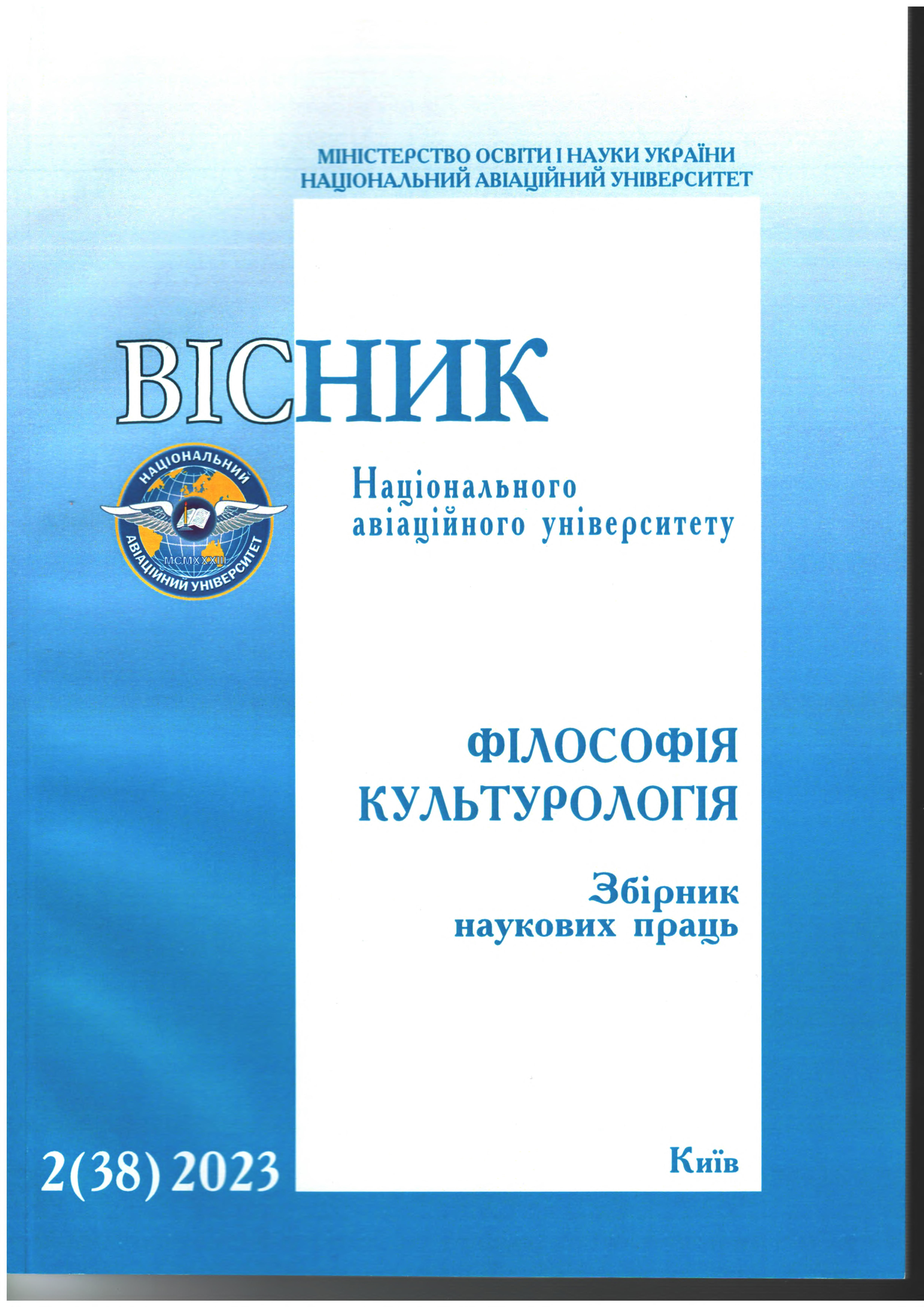POST-METAPHYSICS AS PART OF SOCIAL AND HUMANITARIAN KNOWLEDGE
DOI:
https://doi.org/10.18372/2412-2157.2.18104Keywords:
post-metaphysics, social and humanitarian world, transcendent, metaphysical thinking, reflective philosophy, methodology of post-scientific metaphysicsAbstract
Introduction. The article discusses the concept of postnatural metaphysics. It analyzes the philosophical and epistemological
aspects of the problem of the correspondence of the cognitive means of research into a humanitarian reality that is metaphysical in
nature. The necessity of further overcoming of scientism and naturalism in the social and humanities sciences is substantiated. The
aim and tasks. The article presents and investigates an actual worldview and methodological task: the identification of ontological
prerequisites and the development of appropriate cognitive tools, based on the application of which the further growth of social and
humanitarian knowledge is possible. The author makes an attempt based on the concept of post-scientific metaphysics as a
theoretical-methodological base of humanities and social sciences to discuss the prospects for an adequate solution to this problem.
Research methods. The methodological basis of the analysis is an interdisciplinary approach and transdisciplinary research in the
field of modern philosophy of science. Comparative and hermeneutic methods and axiological and historical approaches were also
used, thanks to which it was possible to substantiate the phenomenon of social and humanitarian knowledge, its specificity, and
significant differences from natural knowledge. Research results. Turning to the metaphysical way of knowing means going beyond
science, and scientific knowledge into the area of metaphysical space, where two types of knowledge are combined: on the one
hand, reliable, rational, and justified knowledge, on the other hand, intuitive, hypothetical and even mystical knowledge.
Metaphysical judgments, therefore, cannot be wholly valid, objective, and rationally justified. This is their difference from scientific
statements, although the latter, in turn, also often remain only assumptions and hypotheses for some time. Discussion. Speculative
metaphysical thinking does not break with traditional social and humanitarian knowledge but rather incorporates its results into own research successes. The post-scientific nature of today’s metaphysics in no way means a complete rejection of the humanities on its part, its considerable achievements in the phenomenal and factual knowledge of being, including its hidden part, especially since much of what science has achieved to one degree or another merge with metaphysics as such. Conclusions. The presence of
immanent metaphysical properties and characteristics in the objects of the humanitarian world suggests a much greater presence of a metaphysical component in the structure of the methodology for studying society.
References
Makkreel R. Wilhelm Dilthey: Philosopher of the Human Studies. Princeton, Princeton University Press, 1992. 480 p. ISBN
Гадамер Г.-Г. Істина і метод. Том 1: Герменевтика 1: Основи філософської герменевтики. Київ: Юніверс, 2000. 464 с.
Гайдеггер М. Будувати, проживати, мислити. Харьків: Фоліо, 1998. – С. 313 -332.
Гайдеггер М. Дорогою до мови. Львів: Літопис, 2007. 232 с.
Дільтей В. Типи світогляду і виявлення їх у метафізичних системах. Філософія: хрестоматія (від витоків
до сьогодення). К.: Знання, 2012. C. 150–162
Дротянко Л. Г. Концепції постмодерну: соціальний проєкт? Соціальне прогнозування? Вісник національного
авіаційного університету. Серія: Філософія. Культурологія: Збірник наукових праць. Вип. 1 (37). 2023. С. 5-10. DOI:
https://doi.org/10.18372/2412-2157.37.17565
Дротянко Л. Г. Трансформація людскої природи в контексті системи «людина – природа». Вісник національного авіаційного університету. Серія: Філософія. Культурологія: Збірник наукових праць. Вип. 1 (35). 2022. С. 5-10. DOI: https://doi.org/10.18372/2412-2157.35.16528
Коллінгвуд Р.Дж. Ідея історії. Київ: Основи, 1996. 616 с.
Ясперс К. Психологія світоглядів. Київ: Видавництво Жупанського, 2009. 464 с.

